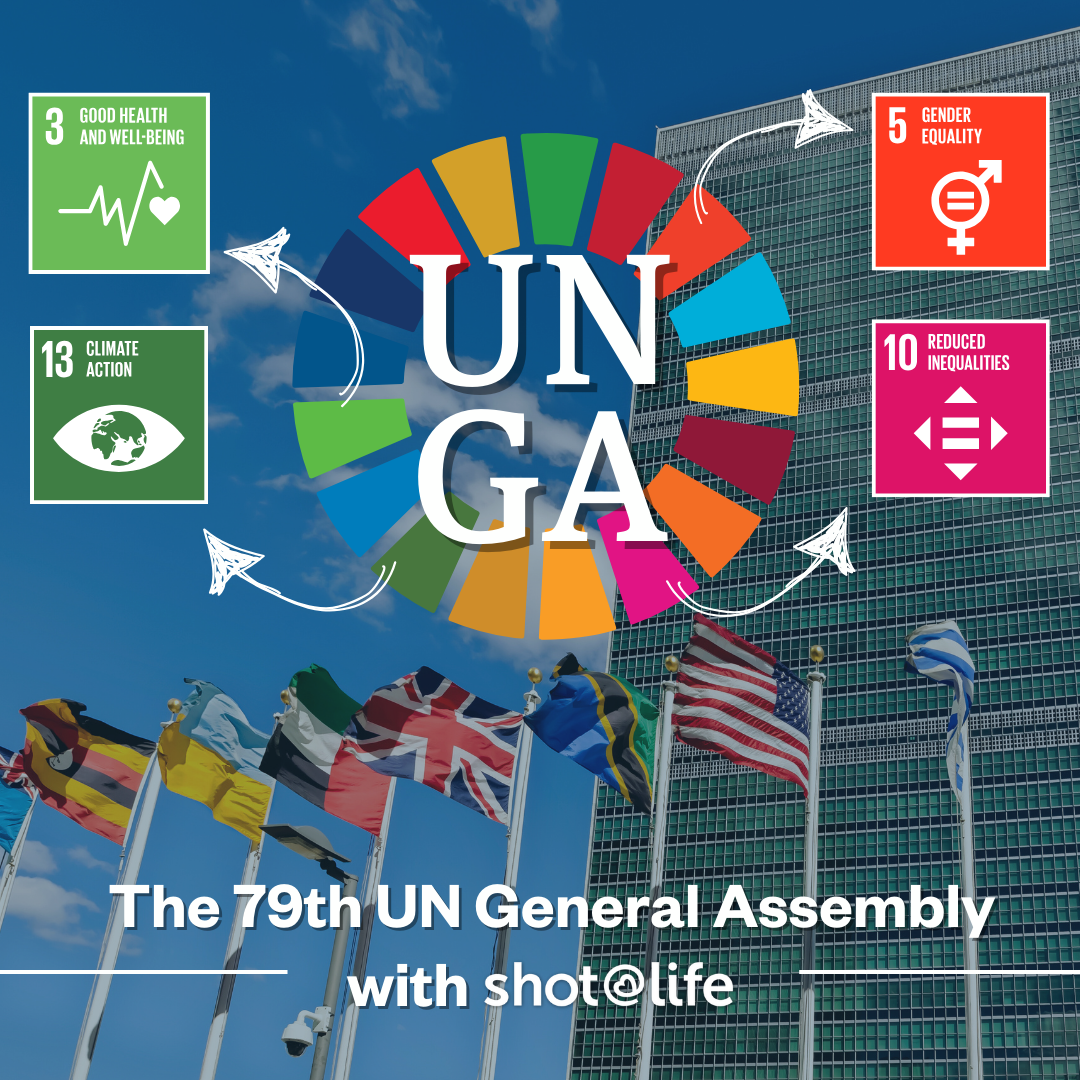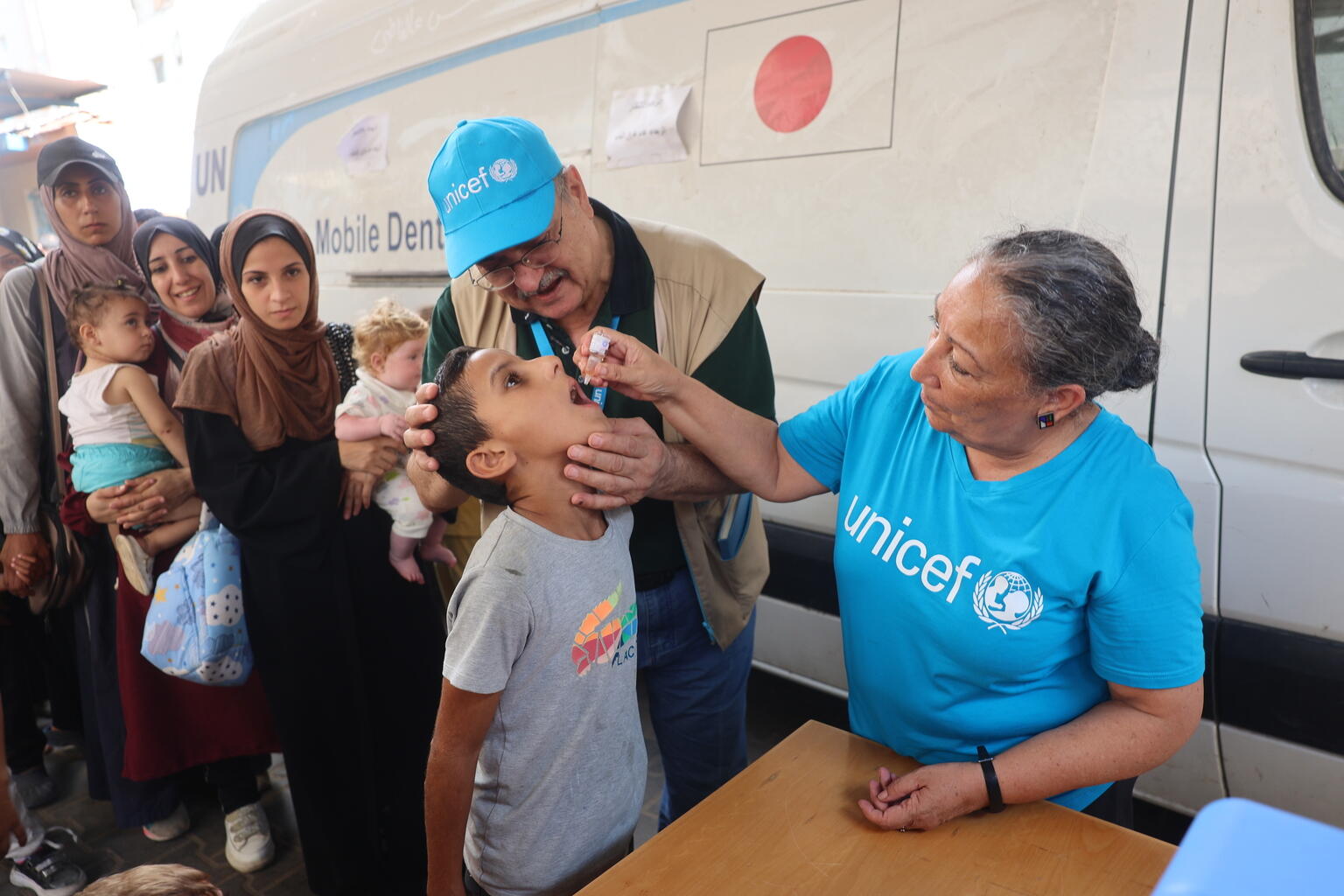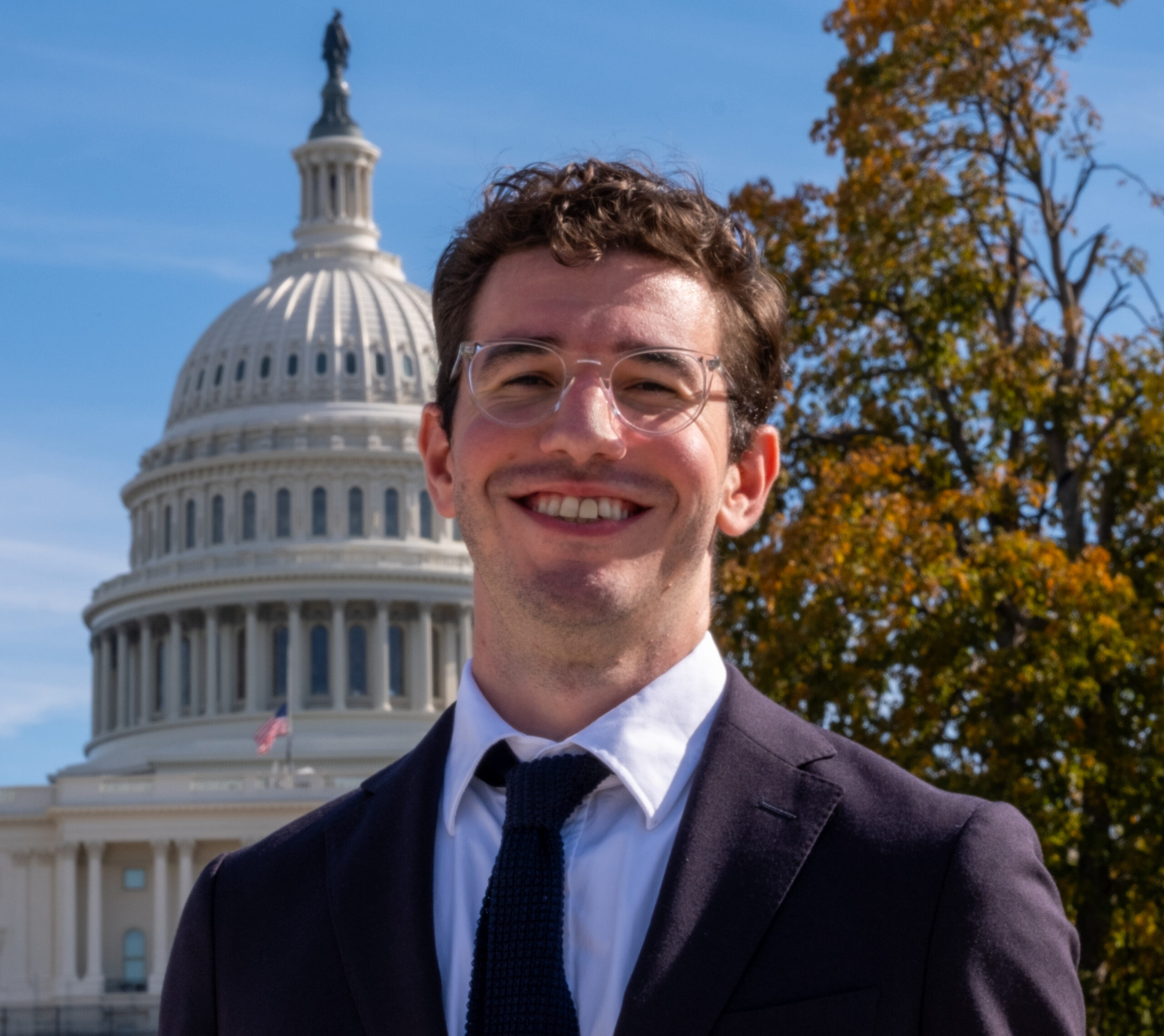Immunization at UNGA79
Global health is again on the agenda at the 79th UN General Assembly. Here’s what you need to know.

Every September, world leaders come together in New York for the United Nations General Assembly (UNGA). Global health is again on the agenda, with a high-level meeting on the rising threat of anti-microbial resistance and conversations on the intersections of climate and health, polio eradication, and pandemic preparedness. Here’s what you need to know.
Anti-microbial resistance
This year’s UN General Assembly features a High-Level Meeting in which heads of state and senior officials will discuss the rising threat of anti-microbial resistance (AMR) and align on a shared strategy to combat it.
AMR is the process by which bacteria, viruses, fungi, and parasites develop resistance to antimicrobial medicines like antibiotics. While this is a natural process that cannot be wholly prevented, overuse of antibiotics for both humans and livestock has accelerated the development of resistance. This public health problem, dubbed the “silent pandemic,” is becoming increasingly pressing and deadly. AMR directly causes or contributes to five million deaths per year, one million of them children under the age of five. While AMR is a complex problem requiring action across multiple fronts, vaccines can play a significant role in decreasing rates of infection, reducing the use of antibiotics, and ultimately slowing the development of resistance.
AMR threatens to send the world back into the era before antibiotics and other antimicrobials, when a routine infection could be deadly.
Dr. Tedros Adhanom Ghebreyesus
The High-Level Meeting on AMR is intended to align UN Member States around a shared approach to combating this growing challenge and elicit concrete commitments to action. The outcome of the High-Level Meeting is a political declaration agreed by Member States. While the final declaration will be the result of negotiations during the Assembly, the draft text points towards reducing deaths, spurring research and development, and developing national action plans to facilitate a localized response as key agenda items.
For more on the High-Level Meeting and political declaration, check out this UN Foundation article all about AMR at UNGA79.
Climate and health
As the effects of a changing climate on human health continue to become apparent, leaders and policymakers are increasingly recognizing the need to treat the climate crisis as a health crisis. COP28, held in December, was the first-ever UN climate conference to feature a dedicated health day focused on the intersections of the two issues. And at the World Health Assembly this May, Member States passed a resolution recognizing climate change as a global health crisis and calling for urgent action.
At this year’s General Assembly, the climate-health nexus is again poised to be a major topic at the conferences and conversations on the sidelines of the high-level meetings. These conversations are urgent and timely, particularly with ongoing shortages of vaccines that protect against the diseases most exacerbated by climate change.
2024 has seen a major surge in cases of cholera, a disease caused by bacteria that spread through contaminated food and water and thrive after extreme weather events. Dengue has also been surging, particularly in the Americas, where rising temperatures have allowed the mosquitos that carry the virus to spread. According to one recent study, rising temperatures are responsible for an 18% increase in dengue in the region and could lead to an increase of more than 40% by mid-century.
While climate change has myriad effects, the particular risks posed by surging diseases require particular focus and concerted action.
Polio and pandemic preparedness
While AMR is unquestionably a central focus at this year’s Assembly, and climate change remains top of mind for world leaders, they are not the only topics with serious implications for global health.
Polio, which we remain desperately close to finally eradicating, will also be the focus of high-profile meetings on the sidelines of the General Assembly. The detection of polio in Gaza, where pre-war vaccination rates were as high as 99%, is a stark reminder that when immunization services and disease surveillance are disrupted, the virus can make a comeback. The first phase of an emergency vaccination campaign has been successfully concluded, but strong immunization programs and continued vigilance are necessary, in Gaza and worldwide, to prevent polio from returning and finally beat it.

Finally, the 77th World Health Assembly concluded in June with countries charting a way forward on a new pandemic agreement to ensure a more effective, equitable, and coordinated response to a future COVID-like crisis. The need for a new, coordinated approach to pandemic preparedness and response has been driven home by the ongoing mpox outbreak in Central Africa, which the World Health Organization has declared a public health emergency of international concern. Access to mpox vaccines at the outbreak’s source in the Democratic Republic of the Congo is still limited; a coordinated international response to this and future disease outbreaks will be essential.
Conclusion
Progress on global health issues, whether growing threats like AMR and climate change or longstanding scourges like polio and the threat of pandemic disease, can be challenging. But driving international focus to these issues is the first step for a truly coordinated, truly effective, and truly fair global response.

